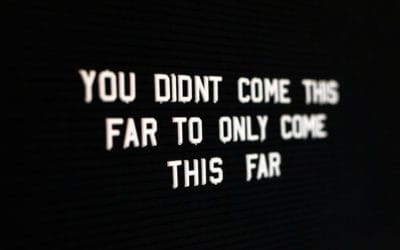What is compassion fatigue?
Compassion fatigue can be described in many ways. It was first described in 1992 in the midst of nursing experiences in the emergency department by Johnson. Sometimes it is referred to as secondary traumatic stress or secondary PTSD. This suggests that it occurs because of repetitive and intense moments of trauma witnessed by those that are involved in taking care of people experiencing the primary trauma (death, cancer, physical trauma, etc). Others characterize it more broadly as a process that occurs when we no longer take care of others in a way that is selfless or concerned. Perhaps it could be described as when our empathy is lost for our patients.In my mind, compassion fatigue is the loss of Hesed. It is a lack of loving-kindness, grace, and mercy when we take care of patients.
Compassion Fatigue has been linked with a strong correlation to burnout. We have investigated the far reaching impact of burnout in the past. However, it cannot be overstated the effects this can have including leading to increased rates of depression/suicide among providers/physicians, worse care for patients, and it being costly for healthcare organizations. Ultimately, what is compassion fatigue? At it’s worst, compassion fatigue is a complete depersonalization and empathy for people around us that would normally garner compassion. It does not allow us to take proper care of our patients and, like burnout, can lead to worse outcomes. Whether burnout leads to compassion fatigue or compassion fatigue leads to burnout can be a difficult question to answer. The truth is, it’s probably irrelevant. Both are bad and both require us (and the organization we work for) to fight the good fight to prevent and treat them.How can we get back to Hesed?
We will continue to look into burnout and compassion fatigue on this website as they are problems that may only worsen over the coming years. Many ways have been proposed to fight compassion fatigue (mindfullness, compassion training, translational compassion programs, etc), but what I want to point out in this post is that compassion fatigue is both present and a problem.
As with anything the first step, is recognizing that a problem exists. So, I encourage you in your daily practice to notice when you see something that should be upsetting that isn’t having that impact. When you experience loss or tragedy, take a moment to process it. Help facilitate this if you are a senior person. Step away. Collect your thoughts. Think. Pray. Then, don’t let these moments slip by without thinking about them. Otherwise, these moments will be the mounting pile of straw that will eventually break the proverbial camel’s back. In the end, keep fighting the good fight. Oh, and don’t be the camel.What do you think? Have you lost your Hesed? Is compassion fatigue an issue in your life and practice? How do you combat compassion fatigue?
TPP




0 Comments